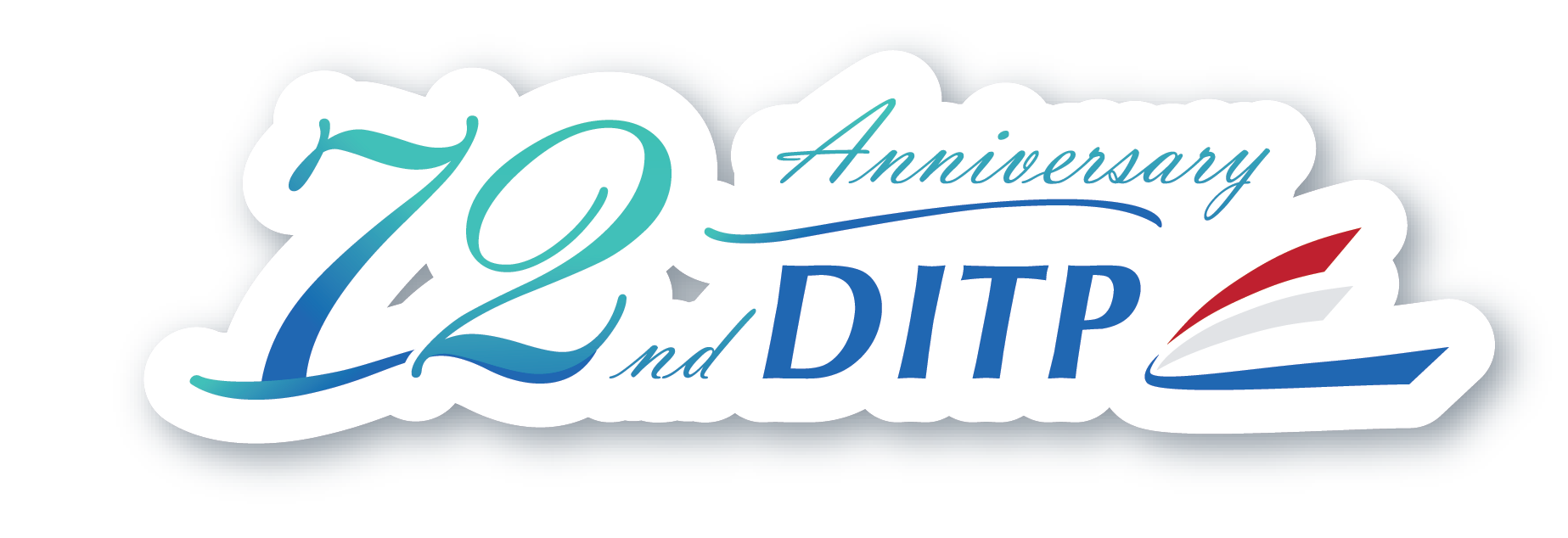ตั้งแต่ 3 กรกฎาคม 2567 เป็นต้นไป สเปนจะบังคับใช้กฎหมาย “ฝาแบบยึดกับขวด” (tethered) สำหรับผลิตภัณฑ์เครื่องดื่มในบรรจุภัณฑ์พลาสติกไม่เกิน 3 ลิตร ตามข้อกำหนดของสหภาพยุโรปภายใต้ระเบียบ Directive (EU) 2019/904 ว่าด้วยการลดผลกระทบจากพลาสติกที่มีต่อสิ่งแวดล้อม ลงวันที่ 5 มิถุนายน 2562 ซึ่งส่วนหนึ่งของ Single-Use Plastics Directive (SUPD)
เพื่อให้เป็นไปตามระเบียบของสหภาพยุโรป รัฐบาลสเปนได้บัญญัติข้อกำหนดการออกแบบบรรจุภัณฑ์สำหรับเครื่องดื่มที่จะวางจำหน่ายในตลาดไว้ในกฎหมายว่าด้วยของเสียและพื้นดินปนเปื้อนเพื่อมุ่งสู่เศรษฐกิจหมุนเวียน (7/2022) ลงวันที่ 8 เมษายน 2565 ไว้ในมาตรา 57 โดยกล่าวถึงแนวทางการผลิต การออกแบบบรรจุภัณฑ์ ตลอดจนถึงระบบการบริหารจัดการ ความรับผิดชอบในส่วนของผู้ผลิต และการพัฒนาตลาดรองสำหรับขวด PET รีไซเคิลในสเปนอีกด้วย ทั้งนี้ มีหมุดหมายสำคัญ ได้แก่
- ตั้งแต่ 3 กรกฎาคม 2567 บรรจุภัณฑ์พลาสติกสำหรับเครื่องดื่มปริมาณต่ำกว่า 3 ลิตร ที่วางจำหน่ายในตลาด (ภาคผนวก 4 ข้อ C) จะต้องมีฝาพลาสติกที่ยึดติดอยู่กับขวดในระยะเวลาการใช้งาน ทั้งนี้ การผลิตจะต้องสอดคล้องกับมาตรฐานที่ได้รับการยินยอมในระดับสหภาพยุโรป
- ตั้งแต่ 1 มกราคม 2568 ขวด PET ที่วางจำหน่ายในตลาดได้ (ภาคผนวก 4 ข้อ E) จะต้องมีส่วนประกอบของพลาสติกรีไซเคิลอย่างน้อย ร้อยละ 25
- ตั้งแต่ 1 มกราคม 2573 บรรจุภัณฑ์พลาสติก ที่วางจำหน่ายในตลาดได้ (ภาคผนวก 4 ข้อ E) จะต้องประกอบด้วยพลาสติกรีไซเคิลอย่างน้อยร้อยละ 30
ในฝั่งผู้บริโภค ชาวสเปนมีการวิพากษ์วิจารณ์เกี่ยวกับความสะดวกสบายในการใช้งาน แต่เนื่องด้วยเป็นกฎหมายและมีวัตถุประสงค์เพื่อมุ่งสู่การปรับตัวสีเขียว การลดขยะ การต่อสู้กับมลภาวะทางสิ่งแวดล้อมที่เกิดจากขวดพลาสติก และโดยเฉพาะฝาขวดพลาสติก ผู้บริโภคจึงปรับตัวและจะกลายเป็นพฤติกรรมใหม่ที่หลีกเลี่ยงไม่ได้ ขณะที่ในฝั่งผู้ผลิต ผู้ประกอบการที่อยู่ในอุตสาหกรรรมได้เตรียมความพร้อมเป็นที่เรียบร้อยแล้ว โดยปรับลักษณะบรรจุภัณฑ์เพื่อให้ยังคงสามารถวางจำหน่ายในตลาดได้ ขณะเดียวกัน ผู้ผลิตบรรจุภัณฑ์ก็เร่งสร้างนวัตกรรมเพื่อตอบโจทย์การบริโภคที่สะดวกสบายที่สุด อาทิ ออกแบบการยึดติดกับขวดให้มีการรบกวนผู้บริโภคน้อยที่สุด หรือ ใช้วัสดุฝาทางเลือกอื่น เช่น stainless Steel เป็นต้น
อนึ่ง ตั้งแต่วันที่ 1 มกราคม 2566 สเปนได้ออกกฎหมายเก็บภาษีบรรจุภัณฑ์พลาสติกที่ใช้ครั้งเดียว (single use plastic packaging) เพื่อป้องกันและลดผลกระทบของผลิตภัณฑ์พลาสติกต่อสิ่งแวดล้อม 0.45 ยูโรต่อกิโลกรัม โดยเก็บจากการผลิต การนำเข้า และการได้มาของบรรจุภัณฑ์พลาสติกที่ใช้ครั้งเดียว (single-use plastics) ผลิตภัณฑ์พลาสติกกึ่งสำเร็จรูปสำหรับการผลิตที่ใช้บรรจุหีบห่อ ผลิตภัณฑ์บรรจุในพลาสติกที่ปิดผนึกเพื่อใช้ครั้งเดียวและเพื่อการตลาดคำนวณจากปริมาณพลาสติกที่ไม่ได้ถูกนำไปรีไซเคิล (กิโลกรัม) ทั้งนี้ ผู้เสียภาษีต้องยื่นการประเมินตนเองเป็นรายเดือนหรือรายไตรมาสเช่นเดียวกันกับการประเมินตนเองสำหรับการเสียภาษีมูลค่าเพิ่ม (VAT) ยกเว้นกรณีการนำเข้า อย่างไรก็ตาม กฎหมายฉบับนี้ได้กำหนดข้อยกเว้นไว้ เช่น ไม่บังคับใช้กับสินค้านำเข้าปริมาณน้อยๆ ภาชนะที่ออกแบบสำหรับบรรจุหีบห่อและการจัดจำหน่ายของยา ผลิตภัณฑ์ด้านอนามัย อาหารสำหรับใช้ทางการแพทย์เป็นพิเศษ สูตรอาหารทารกที่ใช้ในโรงพยาบายและขยะอันตราย
ข้อคิดเห็น สคต.
กฎระเบียบการส่งออกสินค้ามายังสหภาพยุโรปมีการเปลี่ยนแปลงอย่างรวดเร็วอยู่ตลอดเวลา อีกทั้งมีแนวโน้มเข้มข้นขึ้นอย่างต่อเนื่องโดยเฉพาะในด้านความเป็นมิตรต่อสิ่งแวดล้อม ผู้ประกอบการไทยจึงต้องติดตามกฎระเบียบอย่างใกล้ชิด และที่สำคัญ ผู้เล่นรายใหม่ที่ต้องการบุกเจาะตลาดจะต้องเพิ่มน้ำหนักในการปรับตัวสู่ธุรกิจสีเขียว เพื่อสร้างขีดความสามารถทางการแข่งขัน และสร้างภูมิทางการค้าระหว่างประเทศ
ข้อแนะนำ คือ การศึกษาระเบียบให้ถ่องแท้ในแต่ละอุตสาหกรรม การแสวงหาข้อมูลจากคู่ค้าและกระชับความสัมพันธ์เพื่อร่วมกันหาทางออกที่มีประสิทธิภาพสูงสุด การสื่อสารกับคู่ค้าของตนอย่างสม่ำเสมอ การพัฒนาธุรกิจไปในทิศทางของ BCG Economy เพื่อมุ่งสู่เป้าหมาย SDG อาทิ การออกแบบกระบวนการผลิตที่ลดการปล่อยของเสีย การสร้างนวัตกรรมให้กับผลิตภัณฑ์ การใช้บรรจุภัณฑ์รักษ์โลก จะช่วยให้ผู้ประกอบการไทยมีแต้มต่อที่ดี ดำเนินธุรกิจอย่างมีทิศทาง มีการลงทุนที่คุ้มค่า มีขีดความสามารถทางการแข่งขันในเวทีสากล และเติบโตอย่างยั่งยืน
ที่มา : El Español / ประมวลพระราชบัญญัติสเปน https://www.boe.es/eli/es/l/2022/04/08/7/con
ภาคผนวกข้อกฎหมาย ภาคผนวก 4 ข้อ C
ANNEX IV
Single-use plastic products
A. Single-use plastic products subject to reduction:
1) Beverage glasses, including their lids and stoppers.
2) Food containers, such as boxes, with or without lids, used for the purpose of containing food that:
a) They are intended for immediate consumption, on site or to take away.
b) They are normally consumed in the container itself.
c) Are ready for consumption without any further preparation, such as cooking, boiling or heating, including food containers used for fast food or other foods ready for immediate consumption, except beverage containers, plates and containers and wrappers containing food.
B. Single-use plastic products subject to restrictions on placing on the market:
1) Cotton buds, except if they fall within the scope of application of Royal Decree 1591/2009, of October 16, which regulates health products.
2) Cutlery (forks, knives, spoons, chopsticks).
3) Dishes.
4) Straws, except if they fall within the scope of application of Royal Decree 1591/2009, of October 16.
5) Drink stirrers.
6) Sticks intended to hold and be attached to balloons, with the exception of balloons for industrial and professional uses and applications that are not distributed to consumers, including the mechanisms of these sticks.
7) Food containers mentioned in section A.2 made of expanded polystyrene.
8) Beverage containers made of expanded polystyrene, including their lids and plugs.
9) Beverage cups made of expanded polystyrene, including their lids and stoppers.
C. Single-use plastic products subject to ecodesign requirements:
Beverage containers of up to three liters capacity, that is, containers used to contain liquids, such as beverage bottles, including their lids and stoppers, and composite beverage containers, including their lids and stoppers, but not:
a) Glass or metal beverage containers with lids and plugs made of plastic.
b) Beverage containers intended and used for food for special medical purposes, as defined in Article 2, letter g) of Regulation (EU) No 609/2013 of the European Parliament and of the Council of 12 June of 2013 on foods intended for infants and young children, foods for special medical purposes and complete diet substitutes for weight control and repealing Council Directive 92/52/EEC , Commission Directives 96/8/EC, 1999/21/EC, 2006/125/EC and 2006/141/EC, Directive 2009/39/EC of the European Parliament and of the Council and Regulations (EC) n ° 41/2009 and (EC) No 953/2009 of the Commission that are in liquid state.
D. Single-use plastic products subject to marking requirements:
1) Sanitary pads, tampons and tampon applicators.
2) Wet wipes, that is, pre-moistened wipes for personal hygiene and household uses.
3) Tobacco products with filters and filters marketed for use in combination with tobacco products.
4) Drinking glasses.
E. Single-use plastic products subject to separate collection and ecodesign requirements:
Beverage bottles of up to three liters capacity, including their lids and stoppers, but not:
a) Glass or metal beverage bottles with lids and stoppers made of plastic.
b) Beverage bottles intended for and used for food for special medical purposes, as defined in Article 2(g) of Regulation (EU) No 609/2013 of the European Parliament and of the Council of 12 June 2013, which are in liquid state.
F. Single-use plastic products subject to article 60 on extended producer responsibility and article 61 on awareness measures.
1. Single-use plastic products subject to section 2 of article 60 on extended producer responsibility:
1) Food containers, such as boxes, with or without lids, used for the purpose of containing food that:
a) They are intended for immediate consumption, on site or to take away.
b) They are normally consumed in the container itself.
c) Are ready for consumption without any further preparation, such as cooking, boiling or heating, including food containers used for fast food or other foods ready for immediate consumption, except beverage containers, plates and containers and wrappers containing food.
2) Containers and wrappers made of a flexible material that contain food intended for immediate consumption in the wrapper or container itself without any further preparation.
3) Beverage containers of up to three liters capacity, that is, containers used to contain liquids, such as beverage bottles, including their caps and lids, and composite beverage containers, including their caps and lids, but not containers for glass or metal drinks with stoppers and lids made of plastic.
4) Drinking glasses, including their lids and stoppers.
5) Light plastic bags, as defined in Royal Decree 293/2018, of May 18.
2. Single-use plastic products subject to section 3 of article 60 on extended producer responsibility:
1) Wet wipes, that is, pre-moistened wipes for personal hygiene and household uses.
2) Balloons, except balloons for industrial and professional uses and applications, which are not distributed to consumers.
3) Filtered tobacco products, and filters marketed for use in combination with tobacco products.
สำนักงานส่งเสริมการค้าในต่างประเทศ ณ กรุงมาดริด
มีนาคม 2567










